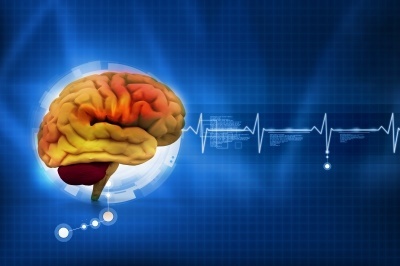Psychological trauma occurs when it is not possible to process a situation with one’s usual, everyday coping mechanisms, leaving the individual in fear for his life or sanity. Trauma can be due to violence, helplessness, physical pain, illness, grief, or physical, verbal, or emotional abuse.
While we recover from setbacks every day, the effects of trauma linger long after the traumatic event has passed. The memory of the trauma instigates physical and emotional symptoms — like aftershocks — that can baffle and frustrate the individual, sometimes re-traumatizing them all over again. Moreover, stressors that were easily managed in the past may now seem far more challenging. Symptoms of post-traumatic stress might include nightmares, flashbacks, and changes in mood or affections.

Smaller frustrations and challenges resolve naturally, but trauma can lead to despair.
The Problems Trauma Causes
Scientists have long known that trauma has a lasting effect on the brain, including the amygdala, the hippocampus, and the prefrontal cortex, three adjacent areas of the brain that govern memory and the panic response, and sometimes referred to collectively as the limbic system. Trauma can even have epigenetic effects — that is, turn genes on and off — especially in cases of early childhood trauma.
The amygdala is responsible for fear and the startle response. While we don’t enjoy the feeling of anxiety, it is the amygdala’s job to respond to dangerous and threatening situations. It activates the corticotrophin-releasing hormone (CRH), which eventually leads to the production of cortisol. The amygdala is also responsible for “flashbulb memory,” the intensely vivid memories that form when emotions run high. In post-traumatic stress, the activity of the amygdala increases dramatically.
A 2015 study found that repeated exposure to a predator created an increase in activity as well as an increased sensitivity for adrenaline in the amygdala (Rajbhandari et al., 2015).
The prefrontal cortex is responsible for regulating emotions that come from the amygdala. In patients who have experienced trauma, this part of the brain can decrease in size and functionality. Blood flow to the left side of the prefrontal cortex can slow; this part of the brain helps to control language and memory. In post-traumatic stress, many have problems with word retrieval and experience “brain fog.” Meanwhile, blood flow to the right side of the prefrontal cortex increases, rendering emotional responses more intense.

Image courtesy of ddpavumba at FreeDigitalPhotos.net.
The hippocampus is responsible primarily for long-term memory and spatial navigation; part of the role of the hippocampus is to help the individual discern between past events stored in the memory, and the present.
In post-traumatic stress, the hippocampus decreases in size and functionality. As a result, individuals with PTSD, or post-traumatic stress disorder, may experience flashbacks in which a memory has the same emotional resonance as though it were occurring in the present. This is the body’s attempt to ensure that the individual remains vigilant. Unfortunately, it’s impossible to inform the body that the danger is well and truly past!
One of the most important things to remember about the brain is that it is changeable. Although trauma can damage the brain, the brain has the ability to repair, renew, and re-route pathways so that those with post-traumatic stress can be healed. Research is being performed to discover better treatments that help block traumatic memories or help to blunt the stress response. The important thing to remember is that the damage can be reversible, and your mind can be your own again.
The Problems Traumatized People Face
Those who have experienced post-traumatic stress face a number of difficulties. One of the most pressing is that the important people in their lives may have trouble understanding why their friend, partner, or family member can’t just “get over it” and move on. They may wonder why someone else they knew was able to go through a similar experience without lifelong symptoms. The truth is that it is very difficult to predict how specific traumas may affect individuals, and why some are more impacted than others. The important thing to keep in mind is that there is no inherent weakness – spiritual or emotional – in anyone with PTSD. Rather, they have lived in a different environment and had a range of diverse experiences that have shaped their inner landscape differently.
A second common struggle experienced by those with post-traumatic stress is the tendency to self-medicate with drugs or alcohol. A recent study found that one out of five patients with PTSD regularly medicates with drugs or alcohol to manage their symptoms (Leeies et al., 2010). Even more concerning, drug use was correlated with a higher likelihood of committing suicide and to a diminished mental health-related quality of life.

Every cloud does, indeed, have a silver lining.
Rehab Centers Can Help
If you or someone you know is using drugs or alcohol to smother their feelings of anxiety, there are in-house rehab centers that can help. A holistic center that addresses the underlying problems as well as the addictive behaviors themselves is key. Drug and alcohol treatment centers that focus only on the addiction itself are like chopping off the stem of a weed: the root of the problem is still there.
We Can Help
If you are looking for drug treatment centers in Missouri, Harris House is a nonprofit organization in the St. Louis area. It is primarily funded through United Way, with outpatient, inpatient, and halfway house facilities. We have an extensive, seven-building facility and help approximately 500 people per year. Our approach is holistic, with individual treatment plans, employment training, anger and stress management, and treatment for depression. If you or someone you love is struggling with addiction as a result of post-traumatic stress, or for any other reason, contact us and begin a new chapter in your life.
References:
Leeies M, Pagura J, Sareen J, Bolton JM. (2010). The use of alcohol and drugs to self-medicate symptoms of posttraumatic stress disorder. Depress Anxiety. Aug;27(8), 731-6. doi: 10.1002/da.20677. PubMed PMID: 20186981.
Rajbhandari, A. K., Baldo, B. A., & Bakshi, V. P. (2015). Predator Stress-Induced CRF Release Causes Enduring Sensitization of Basolateral Amygdala.








